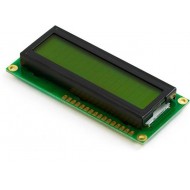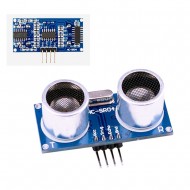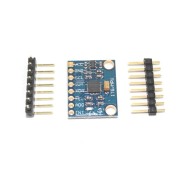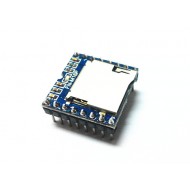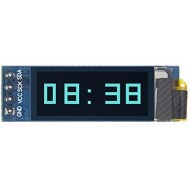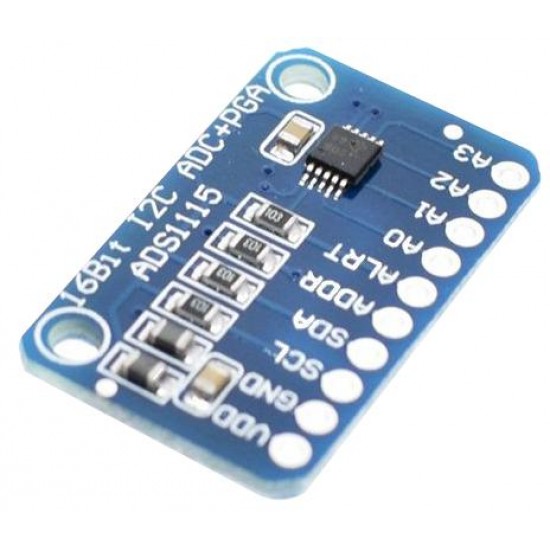
The ADS1115 device is a precision, low-power, 16-bit, I2C-compatible, analog-to-digital converters (ADCs) offered in an ultra-small, leadless, X2QFN-10 package, and a VSSOP-10 package. The device incorporates a low-drift voltage reference and an oscillator. The converter also incorporates a programmable gain amplifier and a digital comparator. These features, along with a wide operating supply range, make the converter well suited for power- and space-constrained, sensor measurement applications.
This is ADS1115 16-Bit ADC – 4 Channel with Programmable Gain Amplifier. For micro-controllers without an analog-to-digital converter or when you want a higher-precision ADC, the ADS1115 provides 16-bit precision at 860 samples/second over I2C. The chip can be configured as 4 single-end input channels or two differential channels. As a nice bonus, it even includes a programmable gain amplifier, up to x16, to help boost up smaller single/differential signals to the full range. We like this ADC because it can run from 2V to 5V power/logic, can measure a large range of signals and it’s super easy to use. It is a great general purpose 16-bit converter.
The ADS1115 perform conversions at data rates up to 860 samples per second (SPS). The PGA offers input ranges from ±256 mV to ±6.144 V, allowing precise large- and small-signal measurements. The converter features an input multiplexer that allows two differential or four single-ended input measurements. Use the digital comparator in the ADS1115 for under- and overvoltage detection.
The ADS1115 operates in either continuous-conversion mode or single-shot mode. The devices are automatically powered down after one conversion in single-shot mode; therefore, power consumption is significantly reduced during idle periods.
To get you start, for the Raspberry Pi (use Adafruit Pi Python library) and Arduino (use ADS1X15 Arduino library).
Simply connect GND to ground, VDD to your logic power supply, and SCL/SDA to your microcontroller’s I2C port and run the example code to start reading data.
Features
Wide Supply Range: 2.0 V to 5.5 V
Low Current Consumption: 150 µA
(Continuous-Conversion Mode)
Programmable Data Rate: 8 SPS to 860 SPS
Single-Cycle Settling
Internal Low-Drift Voltage Reference
Internal Oscillator
I2C Interface: Four Pin-Selectable Addresses
Four Single-Ended or Two Differential Inputs
Programmable Comparator
Operating Temperature Range: –40°C to +125°C
I2C Interface
The module has an easy to use I2C interface that can be configured to use any one of four different I2C addresses if you want to use multiple modules in the same system or if you run into an address conflict with another device..
The ADDR address pin determines which I2C address to use by connecting it as follows:
0x48 = ADDR connected to Ground
0x49 = ADDR connected to VDD
0x4A = ADDR connected to SDA
0x4B = ADDR connected to SCL
- Stock: 1
- Model: ADS1115
- Weight: 0.02kg

